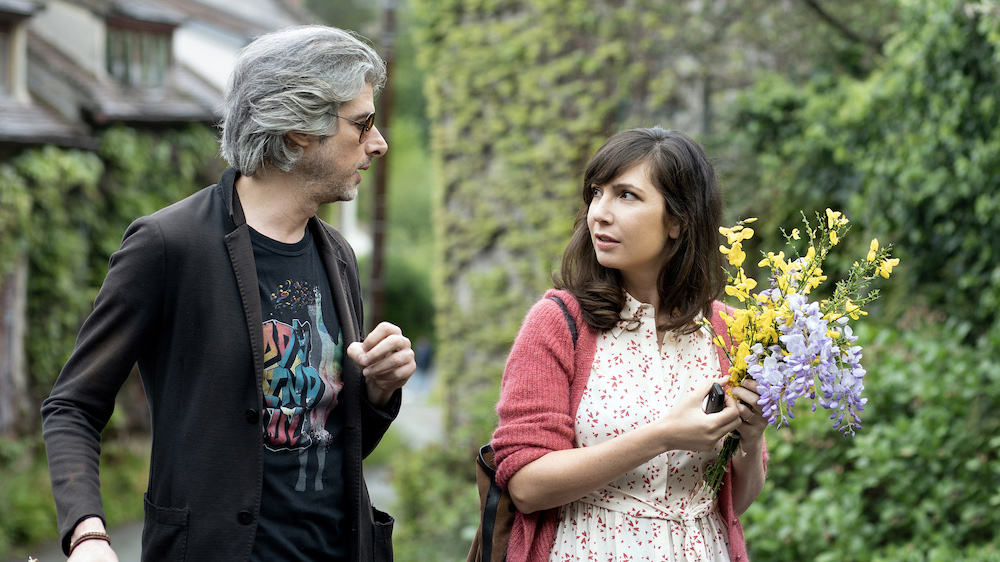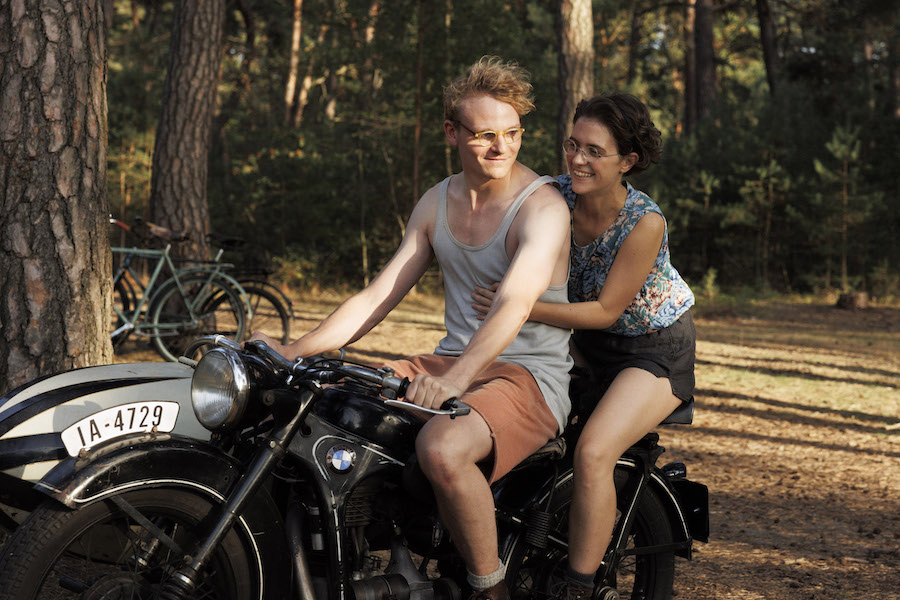by Elisa Giudici
 MY FAVOURITE CAKE © Hamid Janipour
MY FAVOURITE CAKE © Hamid Janipour
Three more movies from Berlinale to discuss including a great Iranian film, the latest from Olivier Assayas, and a World War II picture.
MY FAVOURITE CAKE by Behtash Sanaeeha and Maryam Moghadda
Once again, Iranian cinema, amidst the myriad challenges of filming in a hostile political environment, offers a memorable title. My Favourite Cake is a brilliant bittersweet romantic comedy, addressing universal themes with sudden, precise glimpses into Iranian reality...
The film's protagonist, Minah (Lili Farhadpour), is a widow who lives alone in her beautiful garden home. Her husband passed away years ago, and she only sees her lifelong friends a few times a year. She frequently communicates with her daughter, who has emigrated and built a family abroad. Her life is one of quiet contentment: grocery shopping and cooking, knitting a blanket for her granddaughter while watching soap operas on TV, staying in bed until late morning, awakened by her chatty morning friend.
A story from one of her acquaintances helps her realize a void within, a longing: she feels the need for human contact, a man by her side, even at 70. Her neighbor, related to a government bigwig, acts as the moral police in the building, questioning her about "a male voice" she heard from her apartment.
My Favourite Cake functions as a romantic comedy by portraying a woman who discovers her proactive nature in seeking happiness. Thanks to a stroke of luck she finds it in a stranger who turns out to be perfectly compatible. At the same time, it's a film about grief, loss, and how sometimes a newly blossomed love can hurt more at the end than a decades-long marriage.
Between the lines, My Favourite Cake is also a multi-generational tale of a changing Iran, where elderly women who grew up without the obligation to wear hijab move relatively freely, protected by their age and the respect for the elderly prevailing in the country. It's a beautiful portrait of small and large rebellions by women who find ways to define themselves even in a reality where social control often surfaces suddenly.
Lili Farhadpour's performance is outstanding, and I could see her with an acting trophy. In a press conference, she found herself speaking on behalf of her directors, unable to leave Iran due to a government ban.
 SUSPENDED TIME © Carole Bethuel
SUSPENDED TIME © Carole Bethuel
SUSPENDED TIME by Olivier Assayas
Like Frederick Wiseman's A Couple, Olivier Assayas's Hors du Temps / Suspended Time reminds us that among great contemporary directors -- as with so many from all walks of life -- the pandemic was a period of personal crisis that led to contemplation and a reevaluation of past choices. The issue with Suspended Time is that, much like A Couple, it plays like a blatantly therapeutic session primarily for those who wrote and directed it. In the narrative of the two main brothers - a music critic and a man embodying all the idiosyncrasies and flaws of the average Westerner in quarantine - it often veers into autofiction and, while at it, takes a few jabs at Mia Hansen-Løve's Bergman Island.
The viewer, though, watches this personal, verbose, and somewhat ineffective process, and derives almost nothing from it. (Luca Guadagnino responded to the same impulses with Fiori! Fiori! Fiori! but he did it with a 5-minute short.)
 FROM HILDE, WITH LOVE © Frederic Batier / Pandora Film
FROM HILDE, WITH LOVE © Frederic Batier / Pandora Film
FROM HILDE, WITH LOVE by Andreas Dresen
In Liebe, eure Hilde / From Hilde With Love embodies everything you might expect from a film festival entry: political, authorial, weighing heavily on the soul with the dramatic nature of its narrative. The film tells the true story of Hilde Coppi, a young German partisan executed by the Reich in 1943. Influenced by her husband, a critic of Nazism who ended up at the front, and later romantically involved with a young communist, Hilde takes part in small-scale actions (listening to a Russian radio broadcast, distributing flyers, attempting to contact Moscow via radio) that earn her a death sentence.
Andreas Dresen reconstructs, in a conventional yet convincing and emotional manner, the story of a young woman often underestimated by those around her (yes, even those who love her), who proves to be a reliable militant, a free woman, and an exemplary mother to the son she bears behind bars.
Guided by Liv Lisa Fries's intense performance, In Liebe, eure Hilde alternates between the stark account of Hilde's harsh detention and the magical summer of love and sabotage spent with her action group, while also delineating nuances and subtleties of a group of young people united by a tangle of feelings and political beliefs. It's never explicitly violent; indeed, for a film set in a Gestapo prison, it's surprisingly restrained. Yet, towards the end, it delivers a truly chilling scene: the execution. Lasting only a few seconds, it portrays the act as a brisk, routine practice that sends shivers down the spine.
I've read some complaints that the film glorifies communism. That seems like a pretextual stance to me. In this case, whether communist or not, those who stand against Nazism are the protagonists of this film, and it's hard not to call them heroes. Furthermore, in the end, the film mercilessly underscores the very modest achievements of the group before being discovered and dismantled.